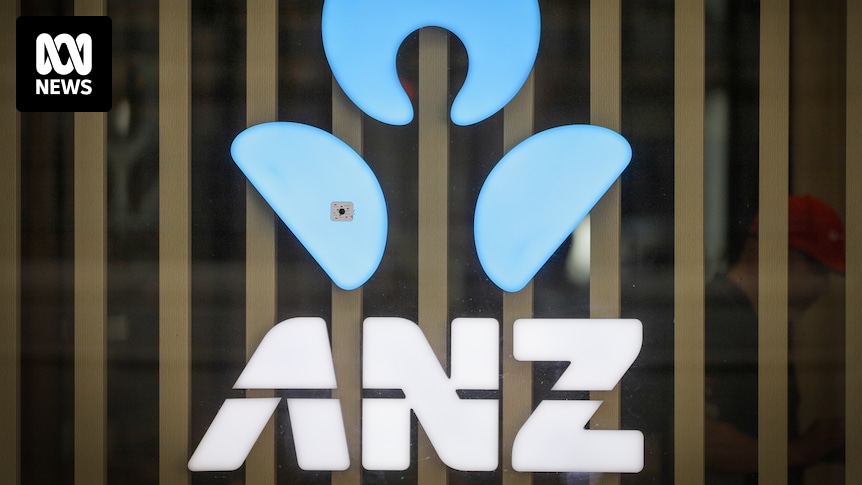ANZ bank faces a record $240 million penalty for engaging in “unconscionable conduct” in some of its bond trading for the federal government, as well as “widespread misconduct” affecting nearly 65,000 retail customers.
The bank has agreed to the penalty with the Australian Securities and Investments Commission (ASIC), although it will require Federal Court approval.
It is the 11th civil action taken by ASIC against ANZ since 2016.
“Time and time again, ANZ has fallen short,” ASIC’s chair, Joe Longo, told a press conference on Monday, where he went as far as to call some of the bank’s actions “grubby”.
“Time and time again, ANZ has betrayed the trust of Australians.
“Today many Australians will rightly be questioning their trust in ANZ.”
Biggest penalty relates to bond trading
The settlement includes an $85 million penalty related to futures trading ANZ did while being one of the managers on the sale of $14 billion worth of Australian government bonds on April 19, 2023.
The big four bank was “duration manager” for the country’s sovereign debt management agency, the Australian Office of Financial Management (AOFM), on the bond transaction, and was supposed to be minimising interest rate risk for the Commonwealth.
“This is a prestigious and trusted role,” Mr Longo said.
ASIC’s position is that ANZ sold an unusually large volume of bond futures ahead of the sale, causing a 2-basis-point fall in the price and pushing up the interest rate the Australian government had to pay on that $14 billion of debt.
“ASIC’s position is that ANZ’s misconduct potentially made the government $26 million worse off,” Mr Longo said.
“ANZ was also not transparent with the government about its trading.
“A lower price for the bond meant the government raised less funds, money that might’ve been used to support essential services, including Australia’s health and education systems, affecting all Australians.”
ANZ maintains the government lost nothing and said ASIC had not alleged it engaged in market manipulation or over-hedging.
“‘We have looked very closely at what happened on the day,” ANZ chair Paul O’Sullivan told an analyst briefing on Monday morning.
“We breached some of our license obligations.
“Inevitably, the nature of hedging has an effect in the marketplace because you are disturbing the market.
“There are many good people working in markets [for ANZ] who feel their reputations have been tarnished.’
However, Mr Longo said ANZ’s dealings around that bond sale were well below the standard of conduct expected of a bank working in such a role.
“Let’s be frank. They said they were going to be frank in their communication with AOFM. They weren’t. They said they were going to follow their own policy and procedure. They didn’t,” he said in the press conference.
“As far as the unconscionable conduct is concerned, it was clearly grubby.”
Mr O’Sullivan said in a statement that ANZ had “apologised” to the AOFM for “inadequate communication” and has offered to refund the government the money the bank made on the deal.
“The board has driven comprehensive accountability reviews in relation to the markets issues, which have resulted in significant reductions in remuneration for certain current and former executives,” he said.
ANZ is also alleged to have overstated its bond trading turnover for nearly two years, which may have resulted in it winning more appointments as the lead for future bond issues. That resulted in an additional $40 million penalty.
Mr O’Sullivan told the investor briefing on Monday morning ANZ believed the bonds matter was now dealt with.
“We do believe today that this draws a line under those issues and lets us move forward,” he said.
Nearly 27,000 customers underpaid savings interest
The regulator said $115 million of the proposed penalty relates to customer failings.
ANZ failed to respond to 488 customer hardship notices, in some cases for more than two years.
ASIC said that the reasons for the hardship applications included unemployment, serious health issues, bereavement and family violence.
In some cases, ANZ undertook debt collection activities, including issuing default notices and bringing in external debt collection agencies, despite not having responded to the customer’s hardship application.
Separately, ANZ made false and misleading statements about some of its savings rates, failing to pay the promised introductory bonus interest rate to tens of thousands of customers.
ANZ had already compensated nearly 200,000 customers affected by the failure between July 2013 and January 2024.
However, another 26,900 customers were underpaid interest for similar reasons between August 2024 and March 2025.
The bank also failed to refund fees to thousands of dead customers and was slow in responding to loved ones trying to manage deceased estates.
As with the incorrect savings rates, ASIC said this was due to inadequate systems and processes that could not identify which fees should be waived or refunded, not whether any fees had already been waived or refunded.
ASIC said ANZ had already been penalised seven times in the past eight years for prior misconduct.
ANZ bosses say sorry
ANZ chair Paul O’Sullivan acknowledged the bank had “made mistakes that have had a significant impact on customers”.
“On behalf of ANZ, I apologise and assure our customers we have taken the necessary action, including holding relevant executives accountable.”
Last week, ANZ’s new chief executive Nuno Matos, who has only been in the role for a matter of months, announced the bank would be cutting 3,500 staff and around 1,000 contractor positions over the next year.
“The failings outlined are simply not good enough and they reinforce the case for change,” he said in a statement.
“It is my expectation that we see measurable improvements across the bank to better protect and care for our customers and to create a more sustainable business.”

